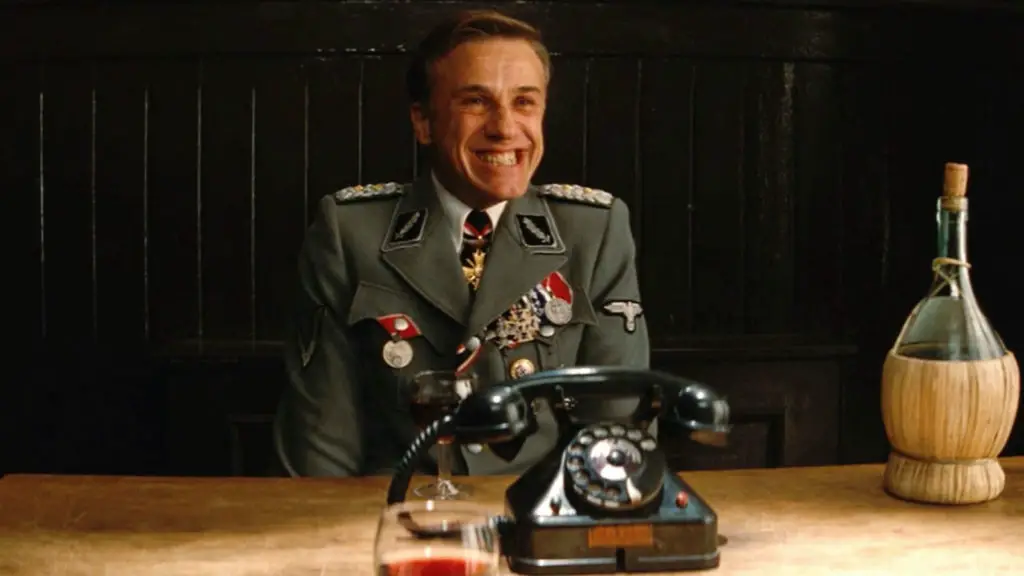
In the mid-70s James Earl Jones/Diahann Carroll vehicle “Claudine,” an urban black family refuses to fall apart. At the conclusion of the film, featuring Jones as a sanitation worker and Carroll as the titular, spirited mother on welfare, Claudine’s teen daughter is pregnant, while Jones’ Roop is distraught over welfare policies (marrying Claudine would jeopardize his financial freedom more than living with her unattached). When he agrees to tie the knot, the ceremony is broken up by Claudine’s son, Charles (Lawrence Hilton-Jacobs), being chased into the ceremony by cops arresting him for political agitation. Roop fights them off, and has to follow Charles into a paddywagon, joining his new family, for better or worse. The final image, a telephoto shot of the family happily walking down the boulevard, flashes them forward to freedom, a statement on their willpower. Deep down, they won’t quit.
“Night Catches Us” – now in release and available on demand after playing this year’s Philadelphia Film Festival – looks to the same timeframe (1970s east coast city life) in a different context. “Claudine” touches on post-Civil Rights, mainly through the subplot of Charles, though the conflict mainly critiques urban economics. As studios found a new audience in urban blacks, these viewers had to wade through exploitation entries for political relevance. Thus “Claudine” stays as breezy as it is subversive. The Philadelphia-set “Night,” however, immerses itself in the post-protest-era times, since the characters try to heal wounds from the severe conflicts. Patricia (Kerry Washington), now a lawyer, was married to a Black Panther killed by police. Local ex-members are convinced that Marcus (Anthony Mackie) set him up. With Patricia’s husband a shadow over his family and the local community, Marcus returns as a prodigal son in need of redemption. The film ends with a possible reconciliation between him and Patricia, even if the communal spirit feels broken.
With the community ambivalent to Patricia, and Marcus’ return awaking bad memories, she insists on staying to serve her home area. Panther memorabilia hangs above her shelf of law books. When looking into the room, Iris (Patricia’s daughter, played by Jamara Griffin) shows a curiosity that will remove her from innocence. As she comes of age and wants to learn about her father, the sight of Marcus strikes an uncanny chord. He appears ready to fulfill a paternal role, though his return will only reveal truths. While Iris tries to understand the tension around her, Jimmy (Amari Cheatom), Patricia’s cousin, disastrously combats the truth. First collecting cans for a white middleman, Jimmy abandons the job to wear a Panther hat and resist racist police. The result is miles away from Charles’ protest that brings Claudine’s family together. Jimmy’s choices appear tragic long before they seal his fate.
Writer-director Tanya Hamilton has crafted an intriguing narrative even if she struggles to realize it onscreen. With locations of the Germantown section of Philadelphia filmed in crisp digital, it’s difficult to travel back 30 years. The filmmaker also brings about low-key performances, forcing fate onto the style in lieu of letting it arise from within. As a stylized piece in search of everyday detail, the film struggles as a visual narrative. We sense “Night’s” power more than see it. Though, in this way, it resonates plenty.

Nice review! At first I thought the film took off too slowly and It took a second viewing for me to grasp Tanya Hamilton’s intention. After I figured it all out, I felt the film was strong.
Anthony Mackie was wonderful as always, and Jamara Griffin’s portrayal was sensitive and superb. She reminded me of Mary Badham when she played Scout Finch in
“To Kill a Mockingbird.”